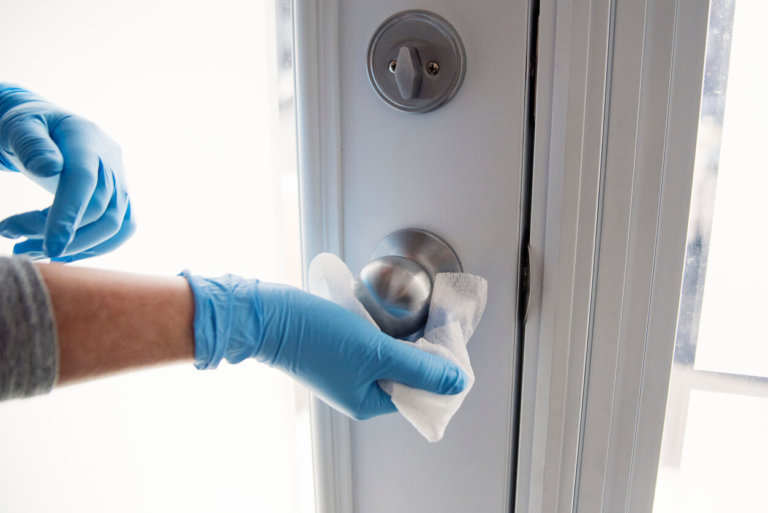Controversies surrounding COVID-19 can lead to confusion when considering how to best protect yourself and your family. However, experts agree that instituting routine cleaning protocols at home is essential to stemming the transmission of the virus.
New Jersey residents have been on the frontline of the early spread of coronavirus. As you take steps in your home to stop the virus from spreading, New Jersey product liability attorneys caution about balancing the use of disinfectants with product safety. It’s essential that you use disinfectants safely while protecting yourself from COVID-19 infection.
How is COVID-19 Spread?
COVID-19 is a highly transmitted virus that spreads from person to person and surface to person contact. Transmitted through saliva and nasal discharge, contaminated droplets land on people and surfaces when infected carriers talk, sneeze, or cough.
How Can Coronavirus Get Inside My House?
As you go about your daily business, you may contact people, objects, and surfaces contaminated with coronavirus. Every time you touch something, you risk contracting the virus and carrying it home. The virus may also enter your home through visitors and materials such as packages and clothing.
How Do I Fight Coronavirus in My Home?
Keeping your home free from COVID-19 is a two-step process that should be completed at least once per day if you are self-quarantining, more frequently if you are not.
First, clean the surfaces in your home with soap or detergent to remove dirt and grime. Next, disinfect the area with chemicals that kill germs and bacteria.
Be sure to follow product directions and allow disinfectants to remain on surfaces for the recommended time needed to kill bacteria and viruses.
Which Chemical Disinfectants Kill COVID19?
The EPA has identified a list of products effective against the novel coronavirus. Approved disinfectants include isopropyl alcohol, benzoyl peroxide, bleach, and everyday household cleaning products such as Lysol, Clorox Wipes, and alcohol-based sanitizers.
If you are unsure about the effectiveness of a disinfectant against COVID-19, check the EPA approved list of products.
7 Steps for Safely Using Disinfectants at Home:
Using disinfectants to kill coronavirus on surfaces has been proven highly effective. Though, when misused, chemical disinfectants can cause you bodily harm. Don’t trade one danger for another. Use caution and reasonable care when disinfecting your home from COVID-19:
- Always read and follow the product directions.
- Never mix products.
- Wear safety gear, including gloves and eye goggles.
- Open windows for proper ventilation.
- Do not use products on people or food.
- Store all chemical products according to product instructions.
- Keep out of reach of children and pets.
In addition to following product safety recommendations, using disposable rags and sponges, wearing a face mask, and laundering clothing worn during cleaning will provide extra measures of personal protection against COVID-19.
New Jersey Product Liability Attorneys Want You To Stay Safe
The rapid spread of COVID-19 has forced New Jersey residents to adjust daily routines and implement new health and safety protocols. In times when large public gatherings and spaces pose a considerable risk to our health, we must all ensure that our homes provide a safe and healthy haven.
Cleaning and disinfecting objects and surfaces in your home can help protect you from COVID-19. However, New Jersey product liability lawyers warn that chemical disinfectants can pose their own health risks.
If you or a loved one have suffered an injury while using a chemical disinfectant or other product, it’s important to speak with a product liability attorney. Contact our New Jersey personal injury attorneys for a free consultation regarding your injury. Depending on the circumstances, you may have a case for compensation.

